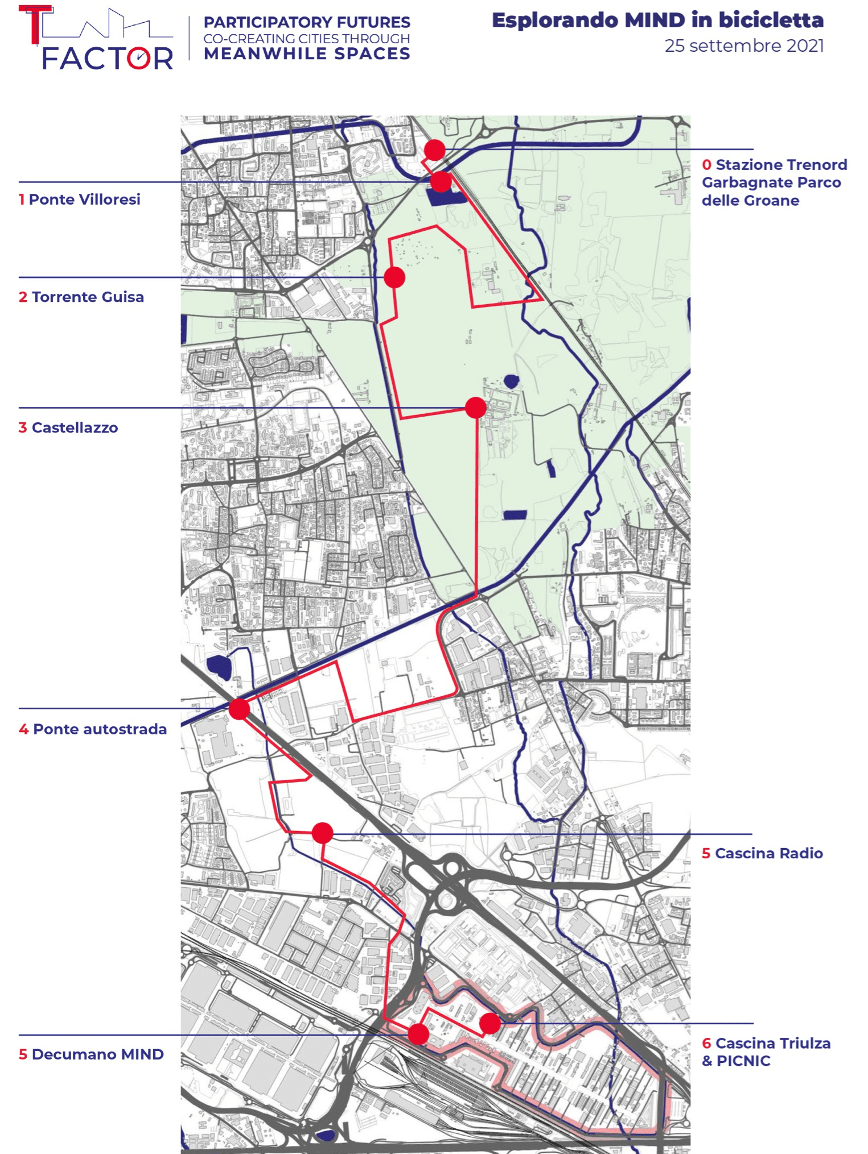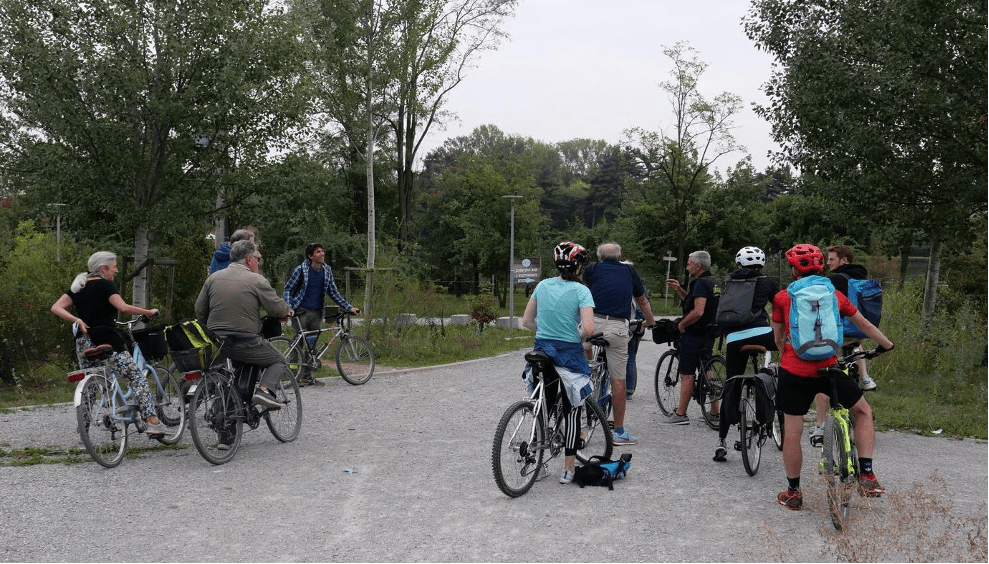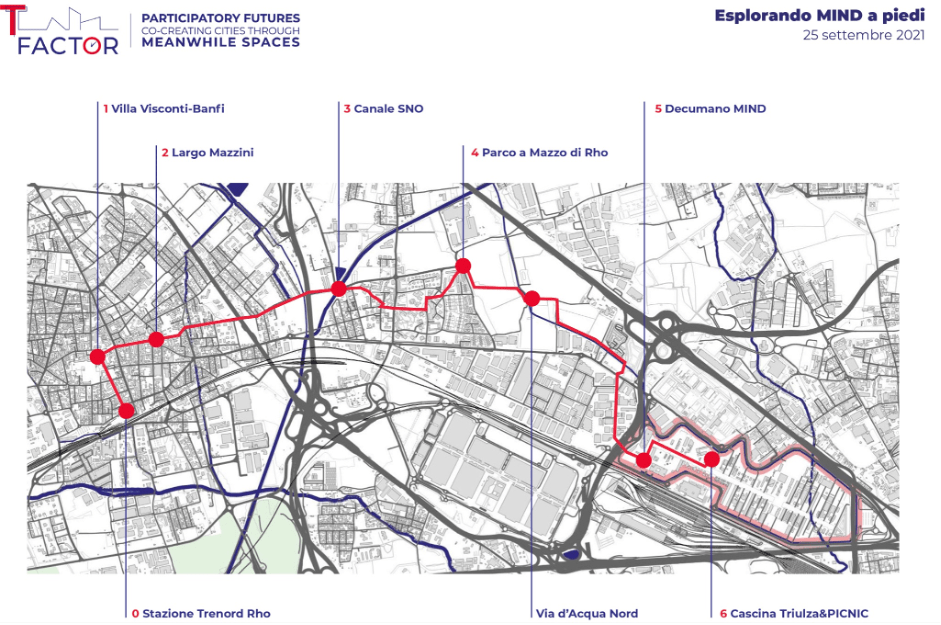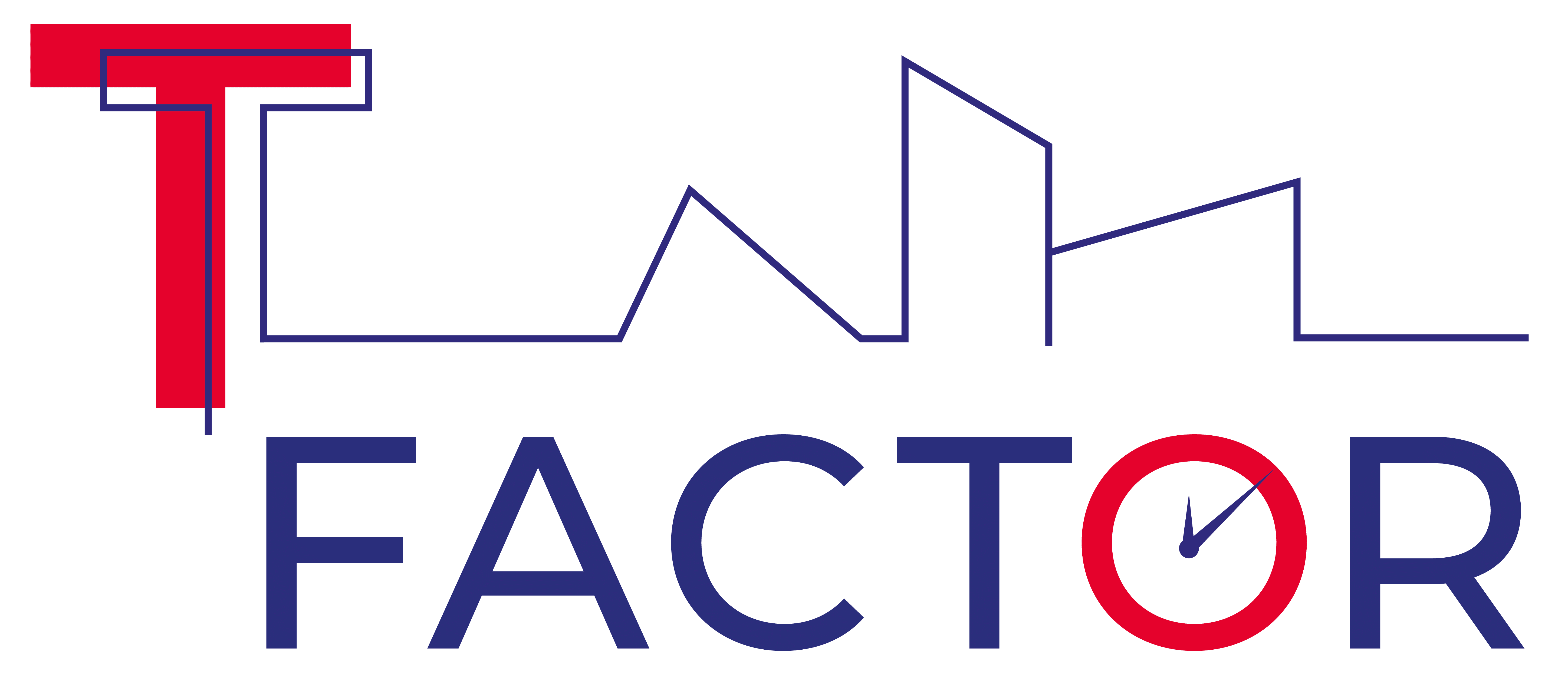Authors: Andrea BALESTRINI, Head of LAND Research Lab. & Stella Zoë SCHMIDTLER, architect, LAND
Transformation Labs, T-labs in short, are the knowledge engines of the T-Factor project. During the second half of 2021, T-Labs are organizing experimental activities, called T-Probes, as prototypes to inspire the pilots with new perspectives and test new approaches.
T-Lab 4, focussed on Urban design for sociality and wellbeing, started the first of these T-Probes at MIND pilot, in Milan, focused on the challenge How can we renew our relationship with nature in urban environments?. The probe consisted of developing participatory mapping of MIND’s open spaces and main accessibility routes focused on the perceptions of those who experience the space.
T-Lab 4, having identified the two Probes during the T-Labs-Pilots workshop in April 2021, started the first of these two activities at the MIND pilot (Milan), focused on the challenge How can we renew our relationship with nature in urban environments?
In May 2021 a first site survey and stakeholder dialogue occurred in order to define aims and activities of the probe; the specific itinerary has been identified by T-Lab4 upon the feedback of the local coalition as well as the outcome of talks with local stakeholders. According to the Pilot support plan proposal, this workshop was planned to develop a first participatory mapping of MIND’s open spaces and main accessibility routes focused on the perceptions of those who experience the space.
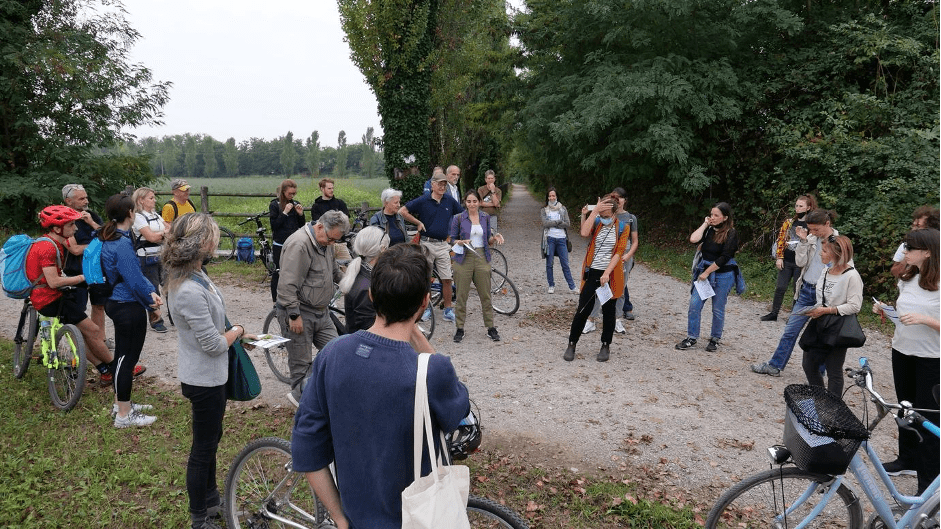
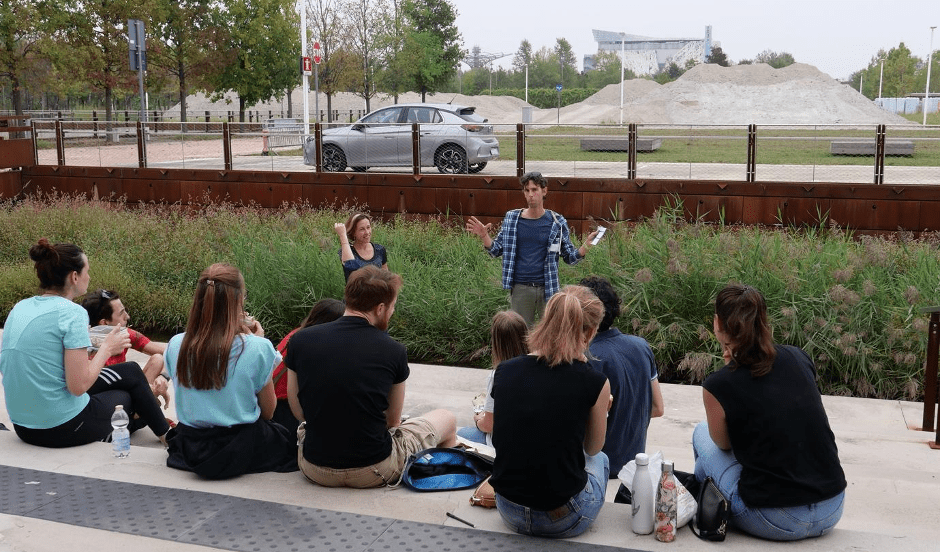
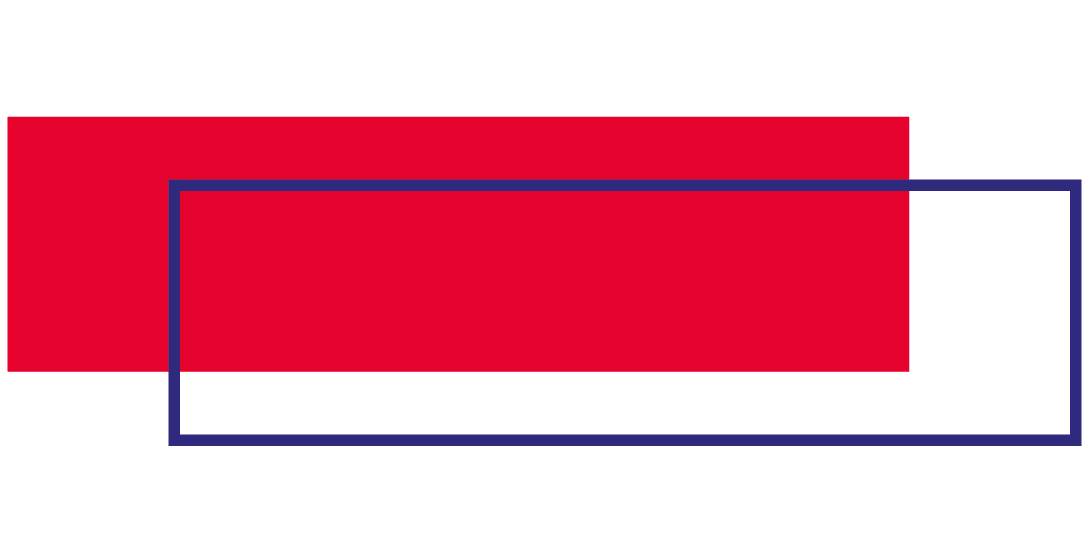
Local experts and professionals went on a tour to MIND Milano Innovation District, reaching it from its surrounding territory. By bike or by foot they tried to discover how MIND is connected to its neighbouring communes during late September 2021, guided and organised by local architects and landscape professionals.
The event was conceived as a bottom-up mapping of the MIND open spaces and its accessibility routes through walking and biking as a participatory method. This enabled participating stakeholders to get in touch with each other and share their impressions about the routes.
The aim was to build awareness of the potential of the area surrounding MIND to engage local communities and consequently activate preferential access routes, but also public functions and spaces within the site.
Participants’ expectations and impressions regarding:
- Relationship with the urban nature (desired or imagined)
- Perception of urban space (critical issues, ideas)
- Use of public open spaces (desired or already done)
- Perception of natural space
These insights were collected on cards which will then be elaborated into different emotional maps of space. Thanks to this activity it will also be possible to collect input for future temporary activities.
The day took the form of a “walk-shop”, a double walk/bike ride through the landscape of ancient waterways and rural routes to the former Expo site, which is becoming the city of the future.
LAND, accompanied by local experts and project partners, guided all participants to discover the latest developments of MIND and the relationships to be enhanced with its landscape. The two tours thus provided an opportunity to rediscover the history of these places and to discuss the role of urban nature and “slow” accessibility in this rapidly changing area.
The routes were chosen on the basis, firstly, of practicality, and secondly, on the basis of the features encountered on the site, which are fundamental to understanding the nature and evolution of the sites.
Both tours included a strategic route designed to enhance and emphasize the characteristics of the area and lasted about 3 hours.
At each break, participants were asked to write a keyword on cards provided by the team; the key word could be something they had seen or an emotion or something that had struck them.
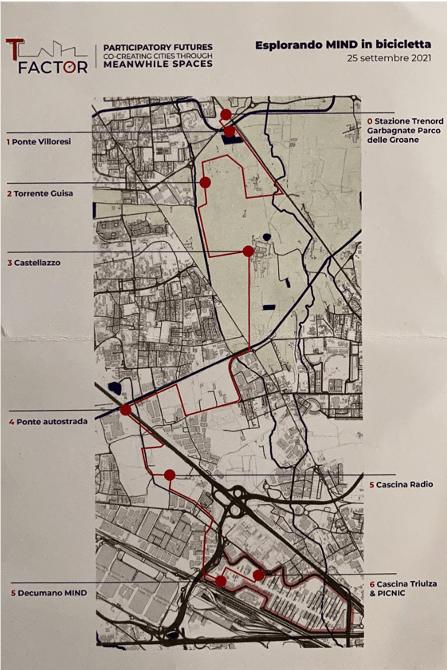

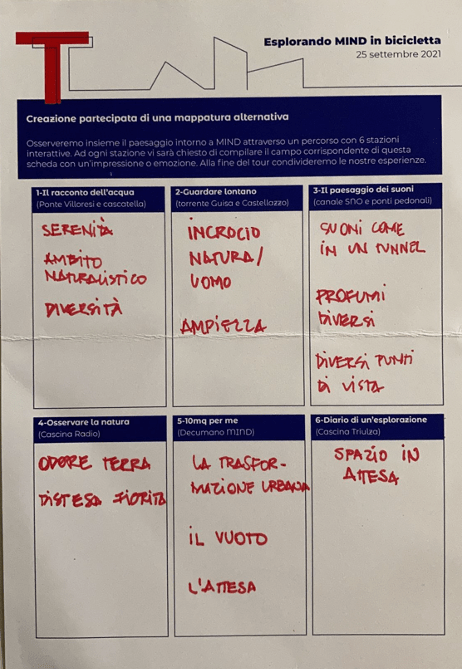




KEY LEARNINGS
- The range of different target groups who took part in the Probe delivered consistent feedback on expectations and potential uses on site as well as on accessibility issues and perception of the project from local communities.
- Active participation in exploring the site, testing nature and imagining spaces raised enthusiasm and curiosity among participants.
- Working within the framework of the T Factor project, whose mission is to stimulate radical new approaches to urban regeneration, focusing on the key role that temporary uses can play in unlocking inclusive, sustainable and thriving urban areas, we believe it is essential to approach future decisions with the help of those who live in the places we have taken as examples, to try to incorporate ideas that respond to real needs and perceptions.
- The activity of data collection can therefore be considered both as a preparatory activity for the future development of the project but above all it can be the basis for a new knowledge of the place and its future vocations.
